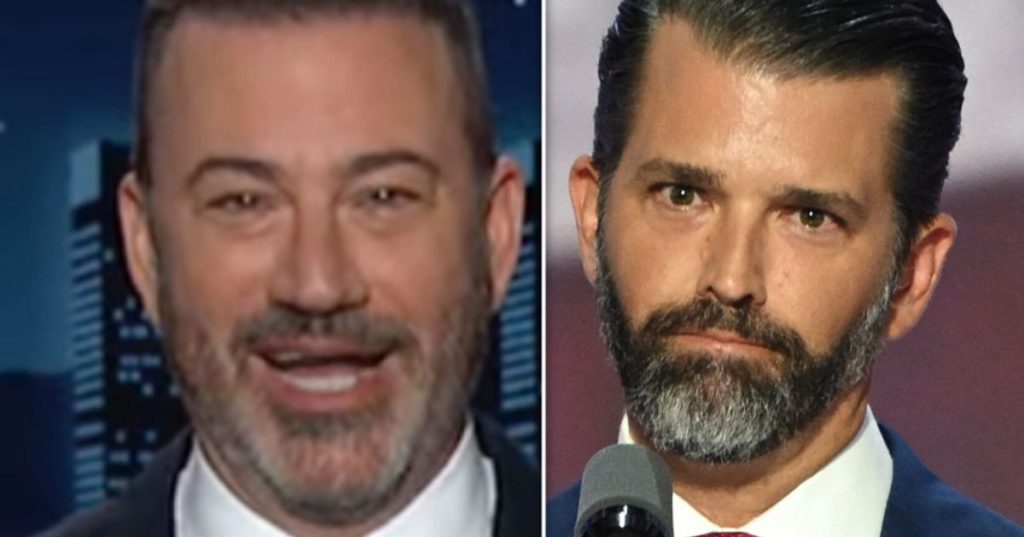Jimmy Kimmel criticized former President Donald Trump for launching new products to sell to his supporters, mocking his $100,000 watches and dubbing him “Rolex Luthor.” Kimmel joked about Trump’s willingness to put his name on anything for a profit, including watches, coins, and other merchandise. He highlighted the irony of Trump claiming the economy is in a bad state under President Joe Biden, yet selling expensive watches that his supporters supposedly can afford.
Kimmel’s monologue humorously ridiculed Trump and his family’s willingness to profit off their name and brand. He mocked Trump’s eldest son, Donald Trump Jr., for endorsing any merchandise handed to him for a dollar. Kimmel questioned the logic of Trump’s claim about the struggling economy when his products are priced so high, suggesting that people can afford expensive watches but not apples. The segment was a satirical take on Trump’s business ventures and his attempts to capitalize on his political following.
The monologue highlighted Trump’s reputation for putting his name on various products and businesses, regardless of their quality or relevance. Kimmel emphasized Trump’s ability to sell anything to his supporters, particularly those within the MAGA (Make America Great Again) movement. By jokingly referring to Trump as “Rolex Luthor,” Kimmel drew attention to the billionaire’s extravagant lifestyle and his efforts to market luxury items to his base.
Kimmel’s critique of Trump’s new products reflected broader concerns about the intertwining of politics, business, and celebrity in American culture. The segment pointed out the contradictions in Trump’s messaging about the economy and his own expensive merchandise. Kimmel used humor to underscore the absurdity of Trump’s branding efforts and his son’s involvement in promoting questionable products to their followers.
Overall, Kimmel’s monologue offered a comedic takedown of Trump’s latest business venture and his family’s involvement in promoting expensive products to their supporters. The segment highlighted the ongoing debate about the ethics of politicians profiting from their public image and political influence. By using satire and humor, Kimmel effectively critiqued the commercialization of politics and the ways in which public figures leverage their fame for personal gain.
In conclusion, Kimmel’s monologue showcased his talent for skewering political figures and highlighting the underlying contradictions and absurdities in their actions. The segment served as a reminder of the pervasive influence of branding and consumerism in modern politics, as well as the willingness of certain public figures to exploit their status for financial gain. Kimmel’s comedic take on Trump’s business endeavors provided a humorous but critical commentary on the intersection of politics, celebrity, and commerce in the contemporary media landscape.


